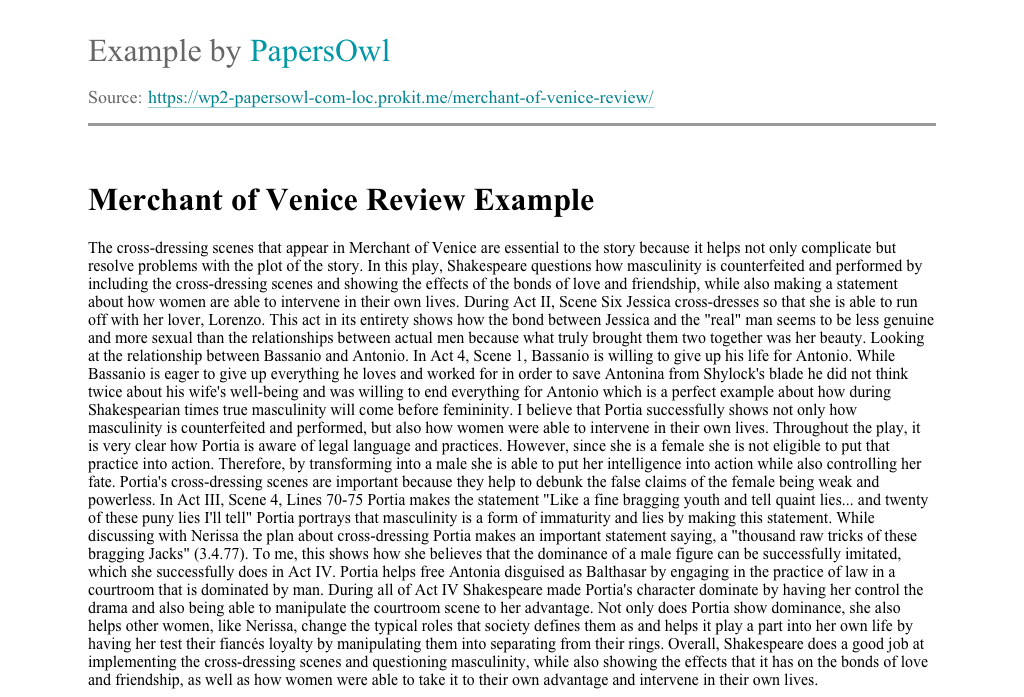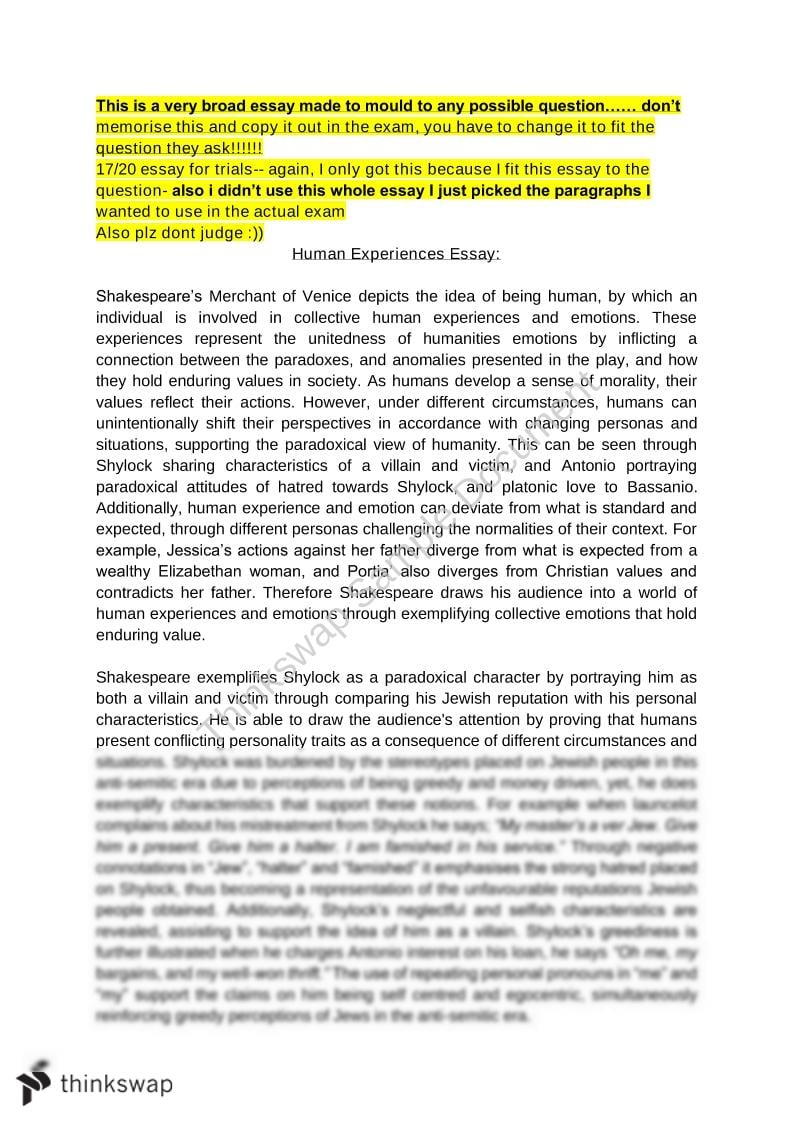
Your password reset email should arrive shortly.
The Merchant of Venice is about Shylock who is a Jewish money lender. His daughter Jessica runs away with a Christian which is a religion that Shylock deeply despises. Shylock seeks ‘a pound of flesh’ from Antonio who is unable to pay back the debt from the bond due to his ships being lost in the sea · In fact, when The Merchant of Venice portrayed Shylock as the villain, the audience considered the play and the actor of Shylock to be taboo. However, in some circumstances this led to future productions of The Merchant of Venice to be even more offensive than before in order to test the boundaries of the audience (Nahshon ) The Value of Loyalty in The Merchant of Venice. words | 2 Pages. The definition of loyalty is a strong feeling of support or allegiance. In The Merchant of Venice by William Shakespeare, dependability, integrity, honesty, and faithfulness are key character traits that exhibit the true meaning of loyalty

Essay examples
The Merchant of Venice is about Shylock who is a Jewish money lender. His daughter Jessica runs away with a Christian which is a religion that Shylock deeply despises. Shylock seeks ‘a pound of flesh’ from Antonio who is unable to pay back the debt from the bond due to his ships being lost in the sea · In the movie, The Merchant In Venice, directed by Michael Radford, the protagonist, a Christian, white, male in Venice during the early sixteen hundreds goes through scenes in which his religion, sexuality, and wealth play a large role in determining his character. Antonio is a businessman that has a reasonable amount of money but the catch is · These themes are evident throughout both William Shakespeare’s The Merchant of Venice (Circa ) and George Orwell’s political essay, Notes on Nationalism (). The Merchant of Venice uses the character of Shylock to demonstrate how severe alienation of an individual based on their religion can affect a person’s actions
Reset Password
· These themes are evident throughout both William Shakespeare’s The Merchant of Venice (Circa ) and George Orwell’s political essay, Notes on Nationalism (). The Merchant of Venice uses the character of Shylock to demonstrate how severe alienation of an individual based on their religion can affect a person’s actions · In fact, when The Merchant of Venice portrayed Shylock as the villain, the audience considered the play and the actor of Shylock to be taboo. However, in some circumstances this led to future productions of The Merchant of Venice to be even more offensive than before in order to test the boundaries of the audience (Nahshon ) · In the movie, The Merchant In Venice, directed by Michael Radford, the protagonist, a Christian, white, male in Venice during the early sixteen hundreds goes through scenes in which his religion, sexuality, and wealth play a large role in determining his character. Antonio is a businessman that has a reasonable amount of money but the catch is
Essay topics
· In the movie, The Merchant In Venice, directed by Michael Radford, the protagonist, a Christian, white, male in Venice during the early sixteen hundreds goes through scenes in which his religion, sexuality, and wealth play a large role in determining his character. Antonio is a businessman that has a reasonable amount of money but the catch is It is human to resent, and it is human to forgive. The courtroom scene enacts a crisis all humans must someday face: whether to pardon an enemy or insist on revenge. Portia speaks on behalf of mercy, arguing that we must always forgive one another because we are constantly hoping for our own share of forgiveness from an all-knowing God The Value of Loyalty in The Merchant of Venice. words | 2 Pages. The definition of loyalty is a strong feeling of support or allegiance. In The Merchant of Venice by William Shakespeare, dependability, integrity, honesty, and faithfulness are key character traits that exhibit the true meaning of loyalty
Top 10 Similar Topics
It is human to resent, and it is human to forgive. The courtroom scene enacts a crisis all humans must someday face: whether to pardon an enemy or insist on revenge. Portia speaks on behalf of mercy, arguing that we must always forgive one another because we are constantly hoping for our own share of forgiveness from an all-knowing God Merchant of Venice The Merchant of Venice, a 16th century play penned by William Shakespeare, opens with Antonio, a Venetian merchant, sunk in gloom. When he finds himself unable to trace the roots of his seemingly endless melancholy, his friends attribute it to his ships at sea. Bassanio, 2 Pages Words The Merchant of Venice - UK Essays
No comments:
Post a Comment